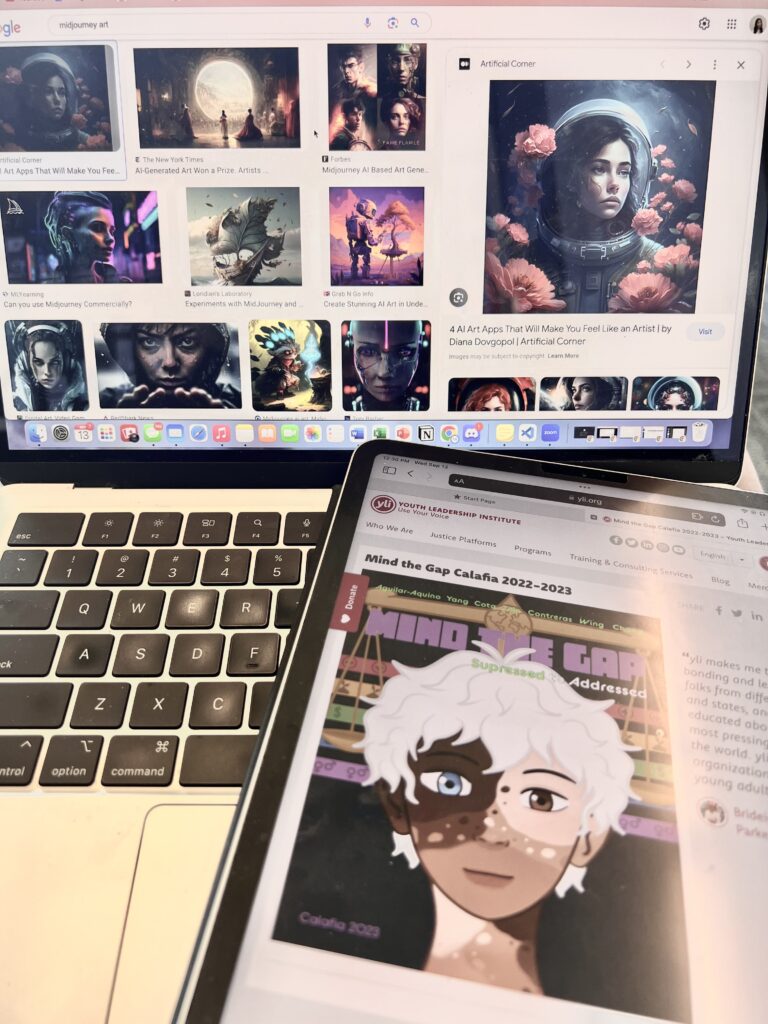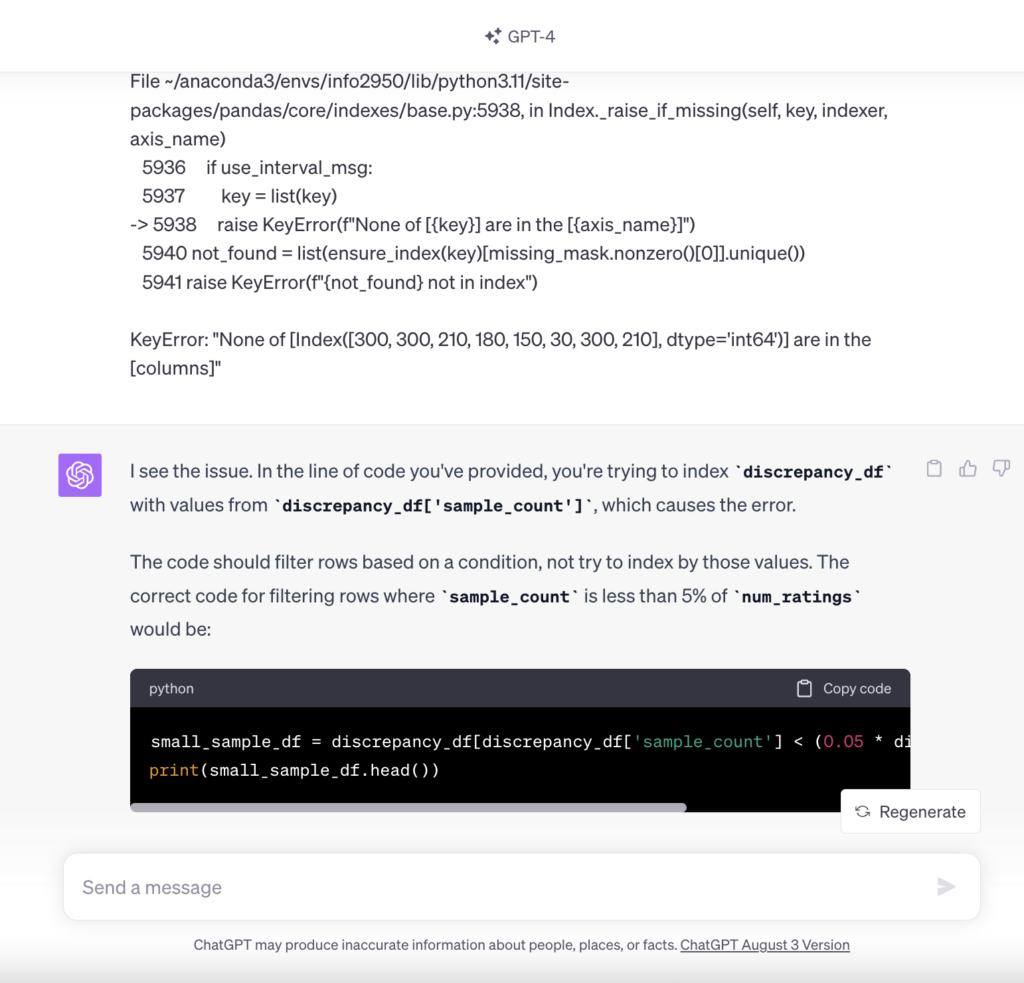I love putting pen to paper – or fingers to keyboard – and letting my imagination run wild. I have written endless short stories, penned personal essays, and authored Op-Eds. The world is my oyster as long as my brain can translate itself into words and grammatical structure. To me, writing is an outlet for creativity and my record of the beauty of being human.
Growing up in San Francisco developed a large part of my identity as a writer. Born to two struggling immigrants and graduate students, where home was a two-bedroom apartment that housed five, I was immersed in diversity from a young age. Creativity followed. On my journey to school, I admired colorful graffiti art strewn across countless walls, observed artists selling paintings off the side of the street, and tapped my feet along to the addicting cadence of subway-playing musicians. But, on the flip side, growing up in the Bay Area also meant adapting to a different rhythm: one of innovation and perpetual technological advancements. After 18 years as a Bay Area resident, I was more than accustomed to the development of these new technologies that were created to better daily life– as a human, student, and writer. Applications and software including the likes of Grammarly and Google’s grammar check served as useful tools that combined machine learning techniques with natural language processing to aid writers, including myself.

So it was no surprise when AI model Chat GPT first “blew up” on TikTok. To me, it was only a matter of time. Talks of artificial intelligence and a future filled with robots had already begun decades ago, especially in Silicon Valley, and I was prepared for a future of automation. In fact, my initial reaction when Chat GPT became mainstream was: This is only the beginning. I was intrigued, asking myself, “Is this the future of the world?” “What can Chat GPT do?” I signed up for an account right away when I realized this AI chatbot could solve my tediously difficult math homework.
Yet, what began as a simple tool for answering problematic homework questions quickly became much more. Suddenly, not only was my “For You page” filled with users creating professional cover letters and generating elaborate cooking recipes, but also showcasing the ability of this chat bot to generate realistic-sounding essays and masterful paintings from nothing but a few, simple, user-inputed keywords. My life began to feature a constant barrage of AI-related headlines. My phone would vibrate daily as my NY Times and Washington Post updates would load in: “Human beings are going to be eclipsed.” “AI Poses ‘Risk of Extinction.” “Training My Replacement’: Inside a Call Center Worker’s Battle With A.I.” This AI sensation wasn’t only happening online. In the classroom, AI related discussions on academic integrity were all too common between students and staff. Ultimately, these instances were a barrage of warnings of a society destined to transition into a revolution of automation, but this time replacing a human ability I believed was untouchable: creativity.
I couldn’t even escape discussions of AI at home. “You need to learn how to code,” my father would tell me, after “Technology is the future. Make sure you’re a part of it.” “What about me?,” I would fume internally. What about my ability to create as a human, without the assistance of AI or technology? To my father, human creativity, long thought to be irrevocably irreplaceable, was now just that. My original essays and articles constructed from hours of hard work? Extensive artworks created by friends? Replaceable. By freaking algorithms.
Yet, it’s undeniable, even to me, that AI programs including Chat GPT, Dall-E, and Midjourney have indeed become useful tools. In fact, I still consult Chat GPT daily for frustrating homework problems rather than trekking 20 minutes to office hours – easing my workload as a student tenfold. But, as a writer, I struggle to adopt the same welcoming approach. A look of disdain plants itself on my face everytime I ask a chat bot to generate me an essay that even remotely touches on the human experience. Every time, they fall flat, feeling mechanical and robotic, rather than artistic and colorful. But it seems I’m the only one who notices this phenomenon. My parents, who have never valued writing or the arts, are in awe of such powerful AI platforms. “Why pursue writing or art with a tool like this?” they proclaim. “Everything you could ever want to create can be done right here.” To my STEM focused friends, there is no difference between an essay or article written by a human or by a chat bot. “Writing is writing. Drawing is drawing.” “If it looks like an essay, reads like an essay, then it is an essay,” they say. Frustration never fails to set in on me during these conversations. Can they not see the difference between my writing and a Chat GPT generated personal narrative? Can they not feel the life that exudes from my works? The way emotions jump off the page? The way my writing is a testament to my real life experiences?

Today, while many headlines in the media cover AI generated works winning competitions and scoring “5s” on AP English exams, there are also countless initiatives such as UChicago’s Glaze that have been created to use machine learning to protect artists and their creations from being used to train emerging AI models. Still, where is the fine line? My biggest question still stands about the use of artificial intelligence and whether or not it can be utilized ethically. Dialogue on ethics in the creative space have always been a point of contention. For machine learning models, where the ability to create AI generated pieces rely on learning patterns based on existing artists’ pieces, there is no method to ensure whether or not artists are being compensated or given credit for the use of their works. AI usage seems to be another area where, without regulation, faith in human good will be the only determinant for an ethical coexistence with these technologies.
As a college freshman, I fear for the future. It seems as if creativity has become less and less of an integral value to society as a whole. In a capitalist system, where efficiency is valued above all else, it should be no surprise. Why bother with treasuring the human experience when it reaps no financial benefits? Chat GPT can create a unique company logo or mission statement with a single click of a button. To many, my parents included, there is no room for human creativity when it cannot compete with time frames measured in milliseconds.
Despite the discourse in my own life and across the world about the ethics of AI, one truth remains: These models aren’t going anywhere anytime soon and AI is undoubtedly the future. For Gen Z, and specifically youth creatives, where does that leave us? I’ve thought about AI more than I can remember, especially regarding my own future. And frankly, I’m not sure what to do.
